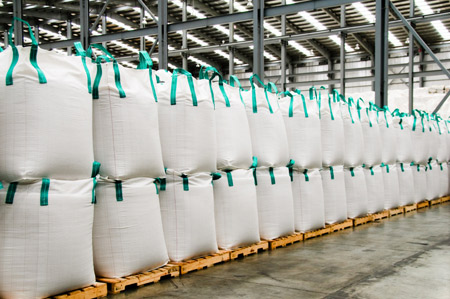USDA swapping sugar again
Category: Sugar
 (AgWeek) – The federal government, still working to bolster low sugar prices, is again offering to swap surplus sugar for sugar import credits.
(AgWeek) – The federal government, still working to bolster low sugar prices, is again offering to swap surplus sugar for sugar import credits.
Two U.S. sugar officials say the new offer, though helpful, is inadequate.
The government offer doesn’t address the real problem — a flood of subsidized Mexican sugar, says Jack Roney, director of economics and policy analysis for the American Sugar Alliance, a sugar industry group based in Washington, D.C.
David Berg, president of American Crystal Sugar Co., a Moorhead, Minn.-based sugar beet cooperative, also applauds the proposed swap.
“I’m glad they’re doing it. It’s a good, bonafide effort. It’s a necessary step in the process,” he says.
Even so, the U.S. sugar industry faces the arrival of more than 2 million tons of Mexican sugar, Berg says.
“There’s simply no place for that sugar to go. The surplus sugar is lapping at our earlobes,” he says.
The U.S. Department of Agriculture announced Sept. 12 that it will exchange sugar it owns for sugar import credit held by refiners. The exchange, which follows similar offers on June 17 and July 23, is a continued effort to address the domestic sugar surplus by reducing the amount of foreign sugar brought into the U.S.
USDA’s new offer would swap up to 85,375 short tons of government-owned sugar for refiner-owned credits, which would allow producers to import sugar and process it in the U.S.
The two previous offers removed a total of 345,712 metric tons of import supply in exchange for 106,742 metric tons of government-owned sugar, a three-to-one reduction in the sugar supply for each ton that was offered.
Loan defaults possible
Record production and Mexican imports have pushed down sugar prices to their lowest levels since the 1980s “through no fault of U.S. sugar producers,” Roney says.
The ICE Sugar 16 futures contract stands at just under 21 cents a pound, up from a recent low of 19 cents a pound but still low by historic standards.
Prices this low increase the possibility that as much as 600,000 tons of sugar, used as collateral for $259 million in government loans, will be forfeited Sept. 30.
USDA estimates prices need to remain above 20.9 cents a pound to prevent defaults.
Berg notes that on Sept. 18, USDA announced plans to buy more domestic sugar to sell to U.S. ethanol makers. The planned purchase, which also seeks to limit defaults on government loans, comes on top of a similar sugar-for-ethanol purchase earlier this summer.
USDA is doing what it can with the tools available to it, Roney says.
The core issue, however, is the growing import of subsidized Mexican sugar under the North American Free Trade Act, Roney says.
American Crystal farmers and shareholders are unfairly hurt by the low sugar prices created by Mexican imports, Berg says.
“The price of everything that happens on the farm has gone up for years, and now the price of sugar has gone down,” Berg says.
“It’s going to be a tough year, no doubt about it,” he says.
Minn-Dak Farmers Cooperative, a sugar beet cooperative based in Wahpeton, N.D., referred questions to Roney.




